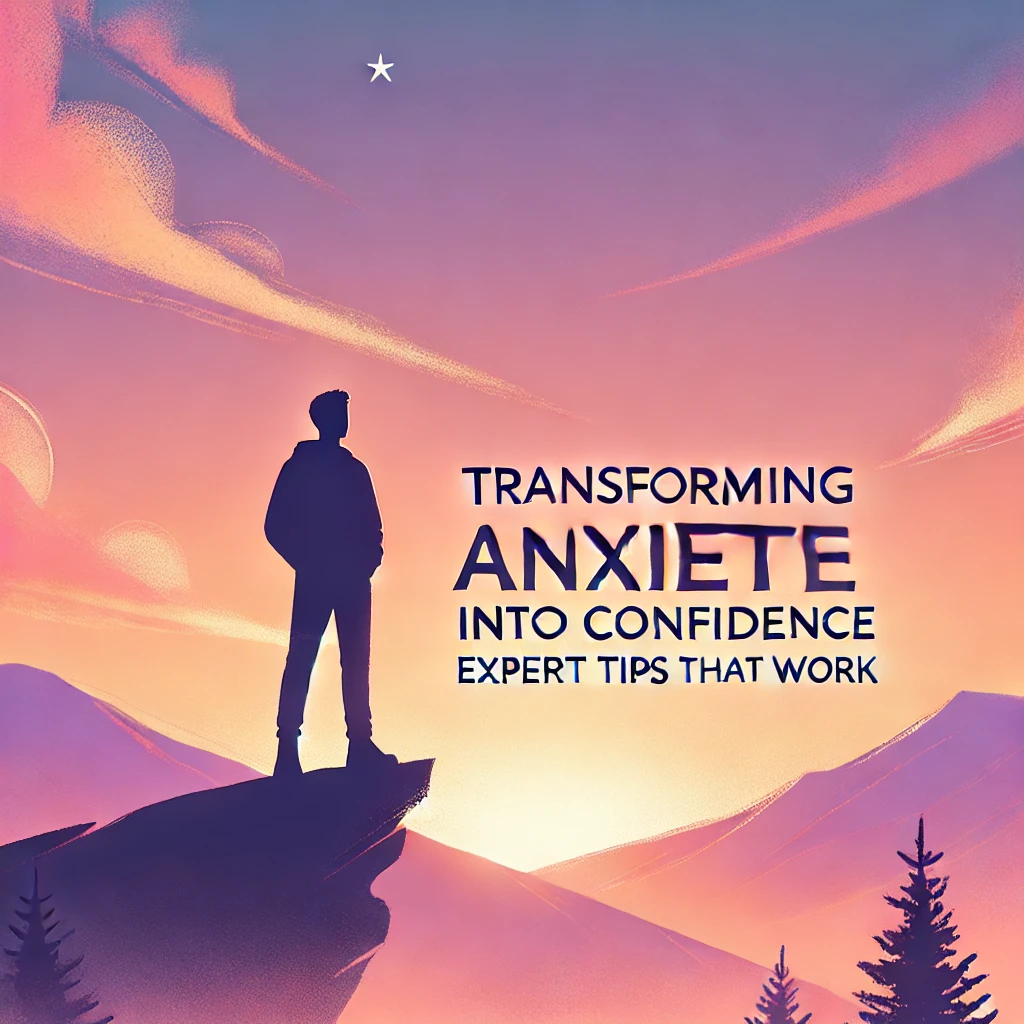Have you ever wondered how some people turn their fears into unstoppable self-assurance? Anxiety is an emotion we all experience at times, but for many, it can feel paralyzing. The good news? Anxiety doesn’t have to control your life. In fact, with the right strategies, you can transform it into a powerful source of confidence.
In this blog post, we’ll explore actionable tips backed by experts to help you navigate the path from anxiety to self-assurance. Let’s dive in.1. Reframe Your Thoughts
Anxiety often stems from negative thinking patterns. Instead of letting your thoughts spiral, challenge them. Ask yourself, “Is this fear rooted in fact or assumption?” Reframing allows you to see challenges as opportunities for growth.Expert Tip: Journaling can help. Write down your anxious thoughts and then counter them with evidence-based reasoning. Cognitive Behavioral Therapy (CBT) is particularly effective in this area. (Beck, 2011)
2. Practice Mindfulness and Meditation
Mindfulness keeps you grounded in the present moment, reducing overthinking and future-focused worry. Regular meditation practices have been shown to decrease anxiety and increase emotional resilience.Expert Tip: Start with just five minutes a day. Apps like Headspace or Calm provide guided meditations tailored for anxiety relief.
3. Develop a Growth Mindset
A fixed mindset amplifies fear of failure, while a growth mindset embraces challenges as a chance to learn. Instead of saying, “I can’t handle this,” shift to, “I’ll learn something valuable from this experience.”Expert Tip: Reflect on past situations where you overcame challenges. Recognize that growth often comes from stepping out of your comfort zone. (Dweck, 2016)
4. Take Action, No Matter How Small
Action builds momentum. Even a tiny step forward can help reduce the hold anxiety has on you. Whether it’s speaking up in a meeting or starting a project you’ve been avoiding, action fosters confidence.Expert Tip: Break tasks into small, manageable pieces. Celebrate each accomplishment to boost your self-belief.
5. Strengthen Your Support System
Sharing your feelings with trusted friends or loved ones can alleviate the weight of anxiety. Additionally, professional counseling or therapy can provide tailored strategies to help you thrive.Expert Tip: Consider joining a support group where you can connect with others experiencing similar struggles. Studies show that social support significantly improves mental health outcomes. (Cohen & Wills, 1985)
6. Harness the Power of Physical Activity
Exercise is not only great for your body but also for your mind. Physical activity releases endorphins, natural mood lifters that combat stress and anxiety.Expert Tip: Aim for 30 minutes of moderate exercise most days. Activities like yoga, walking, or swimming can be particularly calming.
Final Thoughts
Transforming anxiety into confidence is a journey, not an overnight process. By adopting these expert-backed tips and practicing self-compassion, you’ll gradually shift from feeling overwhelmed to feeling empowered. Remember, the first step is acknowledging your anxiety and taking small, intentional actions to overcome it.References
- Beck, A. T. (2011). Cognitive therapy of anxiety disorders: Science and practice.
- Dweck, C. S. (2016). Mindset: The new psychology of success. Ballantine Books.
- Cohen, S., & Wills, T. A. (1985). Stress, social support, and the buffering hypothesis. Psychological Bulletin, 98(2), 310-357.
- Kabat-Zinn, J. (2013). Full catastrophe living: Using the wisdom of your body and mind to face stress, pain, and illness. Bantam.
- American Psychological Association. (2017). Stress in America: The state of our nation.
